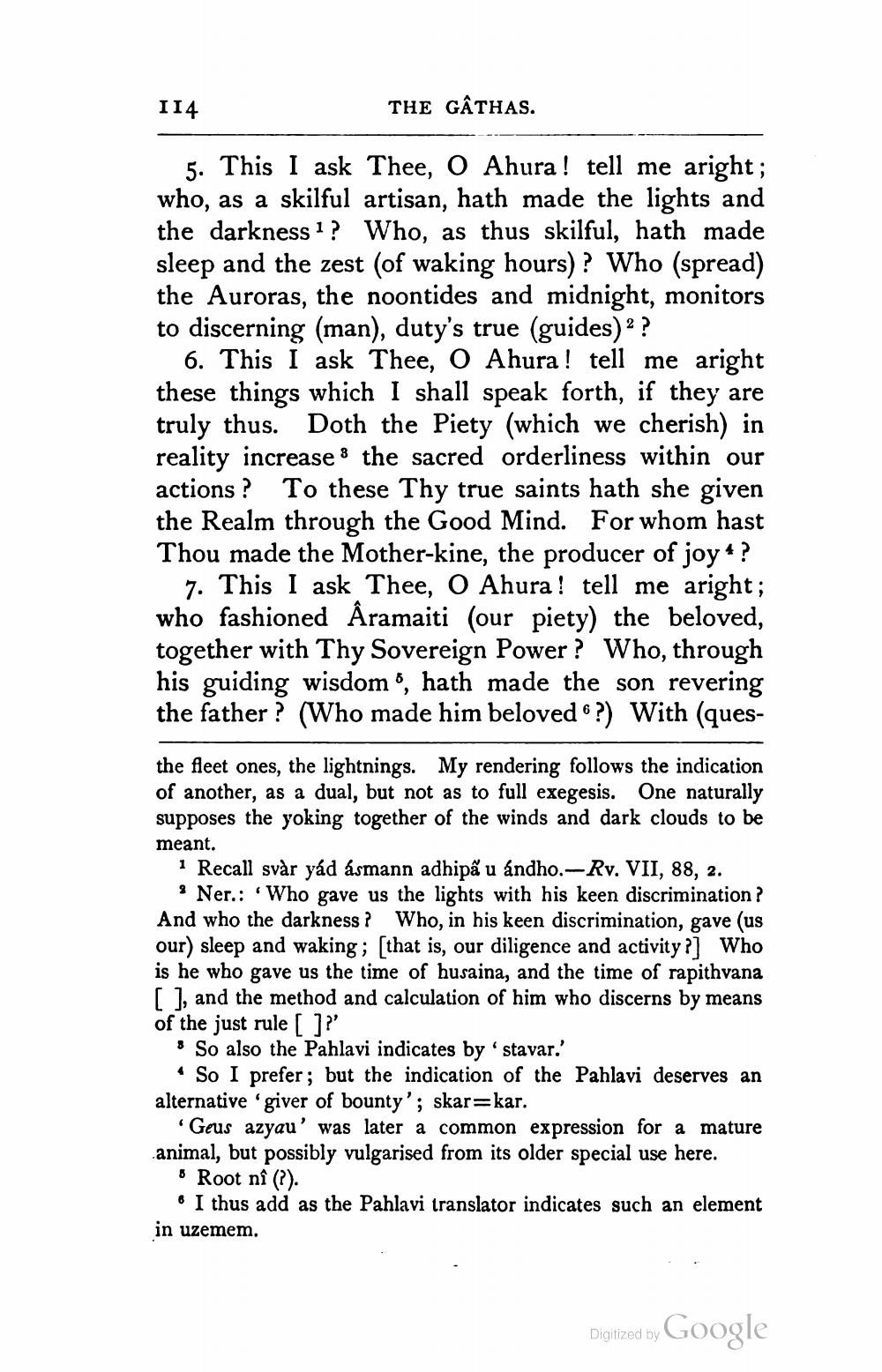________________
114
THE GÂTHAS.
5. This I ask Thee, O Ahura! tell me aright; who, as a skilful artisan, hath made the lights and the darkness 1 ? Who, as thus skilful, hath made sleep and the zest (of waking hours)? Who (spread) the Auroras, the noontides and midnight, monitors to discerning (man), duty's true (guides) 2 ?
6. This I ask Thee, O Ahura! tell me aright these things which I shall speak forth, if they are truly thus. Doth the Piety (which we cherish) in reality increases the sacred orderliness within our actions ? To these Thy true saints hath she given the Realm through the Good Mind. For whom hast Thou made the Mother-kine, the producer of joy ?
7. This I ask Thee, O Ahura! tell me aright; who fashioned Âramaiti (our piety) the beloved, together with Thy Sovereign Power? Who, through his guiding wisdom, hath made the son revering the father ? (Who made him beloved (?) With (ques
the fleet ones, the lightnings. My rendering follows the indication of another, as a dual, but not as to full exegesis. One naturally supposes the yoking together of the winds and dark clouds to be meant.
1 Recall svar yád ásmann adhipă u ándho.-Rv. VII, 88, 2.
· Ner: 'Who gave us the lights with his keen discrimination? And who the darkness? Who, in his keen discrimination, gave (us our) sleep and waking ; [that is, our diligence and activity ?] Who is he who gave us the time of husaina, and the time of rapithvana [ ], and the method and calculation of him who discerns by means of the just rule [ ]?' 8 So also the Pahlavi indicates by stavar.'
So I prefer; but the indication of the Pahlavi deserves an alternative 'giver of bounty'; skar=kar.
Geus azyau' was later a common expression for a mature .animal, but possibly vulgarised from its older special use here.
o Root nî (?).
. I thus add as the Pahlavi translator indicates such an element in uzemem.
Digitized by
Digitized by Google




